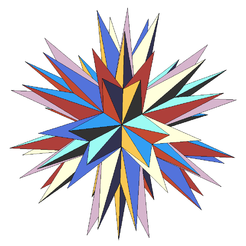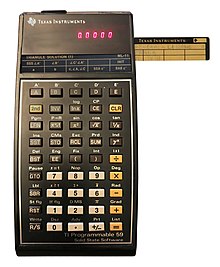| ||||
|---|---|---|---|---|
| Cardinal | fifty-nine | |||
| Ordinal | 59th (fifty-ninth) | |||
| Factorization | prime | |||
| Prime | 17th | |||
| Divisors | 1, 59 | |||
| Greek numeral | ΝΘ´ | |||
| Roman numeral | LIX | |||
| Binary | 1110112 | |||
| Ternary | 20123 | |||
| Senary | 1356 | |||
| Octal | 738 | |||
| Duodecimal | 4B12 | |||
| Hexadecimal | 3B16 | |||

59 (fifty-nine) is the natural number following 58 and preceding 60.
Fifty-nine is the 17th prime number, and 7th super-prime. The next prime number is sixty-one, with which it comprises a twin prime, (59, 61).
59 is one of the factors that divides the smallest composite Euclid number. In this case 59 divides the Euclid number 13# + 1 = 2 × 3 × 5 × 7 × 11 × 13 + 1 = 59 × 509 = 30031 (the greater factor is the 97th prime number).
There are 59 stellations of the regular icosahedron, inclusive of the icosahedron.[6]
The number 59 takes 3 iterations of the "reverse and add" process to form the palindrome 1111 (in base-10). All smaller integers (1 through 58) take either one or two iterations to form a palindrome through this process.[citation needed]
"59" is the highest integer a single symbol may represent in the sexagesimal (base-60) system.
|
See also: List of highways numbered 59 |

Fifty-nine is: